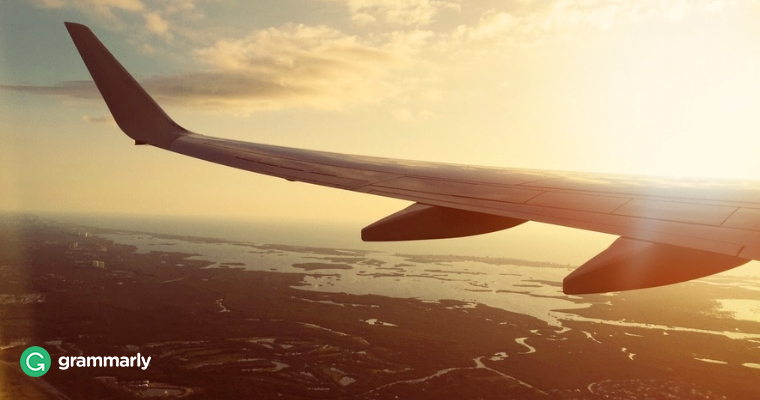How great is it to travel? To meet new people, see new places, experience different cultures, live life the way life is lived somewhere else. Plenty of good things are associated with travel, but there’s one particular issue that can make traveling annoying: the spelling. Travel is easy enough to spell and not at all confusing, but “traveling,” “traveler,” “traveled”? These words are a common cause of confusion because some people spell them with one L while others use two.
If you look through books or magazines for examples, you’ll see that both spellings are used, but the two-L version tends to be used in publications that also use spellings like “colour” or “flavour.” Those publications are written in British English, while the ones that use shorter spellings—“traveled,” “flavor,” and “color”—are written in American English. So the difference between “traveling” and “travelling” is really a variation of dialect. Both spellings are correct. Or, more precisely, neither one of them is wrong.
Travel and Traveling, and How We Use Them
We can use “travel” as a verb and as a noun. As a verb, “travel” has the following uses:
To go on a trip:
Tom spent the rest of the year traveling.
To withstand movement or relocation:
Spots traveled extremely well for a house cat.
To go to a specific location:
We’d never seen so many people in one place until we traveled to New York.
In basketball, to break a rule concerning a number of steps one can take while holding a ball:
Jenny’s points didn’t count because the referee said she traveled.
When we use “travel” as a noun, we are thinking about the act of traveling. That’s why we can speak about our travels, or a write a blog or a book about them.
“Traveling” can be used as an adjective for:
Something that travels, as opposed to staying in place:
When he was a boy, Tim had only one aspiration: to join a traveling circus.
Something that was designed for traveling:
Paula’s traveling alarm clock reminded her of all the time she spent away from home.
Traveling and Travelling: the History of the Split
“Traveling” and “travelling” shared the same fate as many other words in the English language that have two different spellings. The person who’s usually credited (or blamed) for this is Noah Webster—the Webster of Merriam-Webster dictionary fame. He was a linguist and lexicographer who greatly influenced American English. Webster preferred the shorter versions of many words that had multiple spellings. He included the shorter versions in his dictionaries, and, over time, they became dominant in the United States. At the same time, the rest of the English-speaking world gravitated toward the longer spellings. So, while both Americans and Brits can travel, the former can enjoy traveling while the latter can enjoy travelling.
